
(Photo courtesy of Madua Musa via SWNS)
By Stephen Beech
Baby chimps thrive when their moms have lots of friends, according to new research.
Chimpanzee mothers with stronger social ties are more likely to raise surviving babies, even without help from family, say scientists.
The study of wild eastern chimpanzees at Gombe National Park in Tanzania revealed that female chimps who were more socially integrated with other females in the year before giving birth were more likely to raise surviving offspring.
Scientists say the research can help explain how humans evolved to become a social, cooperative species.
Their findings, published in the journal iScience, show that the survival benefits hold for female chimps even in the absence of close family.
The American research team explained that, contrary to many other species, chimpanzee females are the "dispersing" sex, usually leaving their maternal group at sexual maturity and establishing themselves in a new social group away from their family.

(Photo by Guerrero De la Luz via Pexels)
Study lead author Dr. Joseph Feldblum, of Duke University in North Carolina, said: “In species where females live in groups with their sisters and mothers, it’s less surprising that female sociality is beneficial.
“But female chimps don’t usually have that.
"They are also less gregarious than males, so the fact that forming strong social connections still matters is striking.”
To test the connection between friendships and offspring survival, the research team analysed more than three decades of behavioural data from 37 mothers and their 110 offspring.
The team focused on association and grooming - how often females spent time near each other or engaged in social grooming behavior - in the year before birth, to avoid including social behavior from the post-birth period.
Females who were more socially connected had a considerably better chance of raising their babies through to their first year, the period of highest infant mortality.
A female with a sociality score twice the community average had a 95% chance her baby would survive the first year.
One who was halfway below average saw that chance drop to 75%.

(Photo by Guerrero De la Luz via Pexels)
And the effect persisted through to age five, which is roughly the age of weaning.
The researchers then tested whether having close female kin in the group, such as a sister or mother, accounted for the survival benefit.
The team also tested if the key had bonds with males, who could potentially offer protection.
Neither was found to have any impact.
But what mattered the most was having social connections with other females, regardless of kinship.
Dr. Feldblum said, “That tells us it’s not just about being born into a supportive family.
“These are primarily social relationships with non-kin.”
But he said that the mechanism of the survival benefit remains unresolved, although there are several possibilities.

Anna Roberts
Dr. Feldblum says social females might receive less harassment from other females, more help defending food patches or protecting their young, or their offspring could be less likely to be killed by another group member.
He believes social connections might also have helped the females stay in better condition - better fed and less stressed - through pregnancy, giving their offspring a better chance of survival from the outset.
Dr. Feldblum said social females stayed social after their babies were born - a sign of stable relationships, not short-term alliances.
He said, “Our results don’t prove causation, but they point to the value of being surrounded by others who support you, or at least tolerate you.
“We humans are remarkably collaborative and cooperative.
"We cooperate at scales that are pretty much unique in the animal kingdom.
“Human females who don’t have access to kin, for example, because they moved to a new city or village, are still able to form strong bonds that can benefit them."
Dr.. Feldblum added: "Studying these social dynamics in chimpanzees can help us understand how we evolved to be the social, cooperative species we are today.”

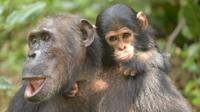

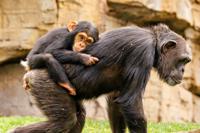

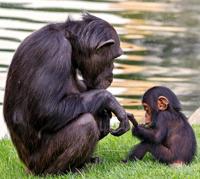

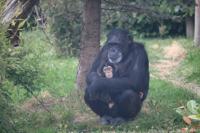

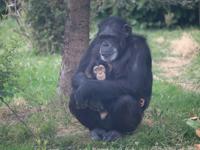






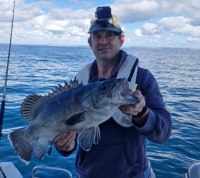







(0) comments
Welcome to the discussion.
Log In
Keep it Clean. Please avoid obscene, vulgar, lewd, racist or sexually-oriented language.
PLEASE TURN OFF YOUR CAPS LOCK.
Don't Threaten. Threats of harming another person will not be tolerated.
Be Truthful. Don't knowingly lie about anyone or anything.
Be Nice. No racism, sexism or any sort of -ism that is degrading to another person.
Be Proactive. Use the 'Report' link on each comment to let us know of abusive posts.
Share with Us. We'd love to hear eyewitness accounts, the history behind an article.